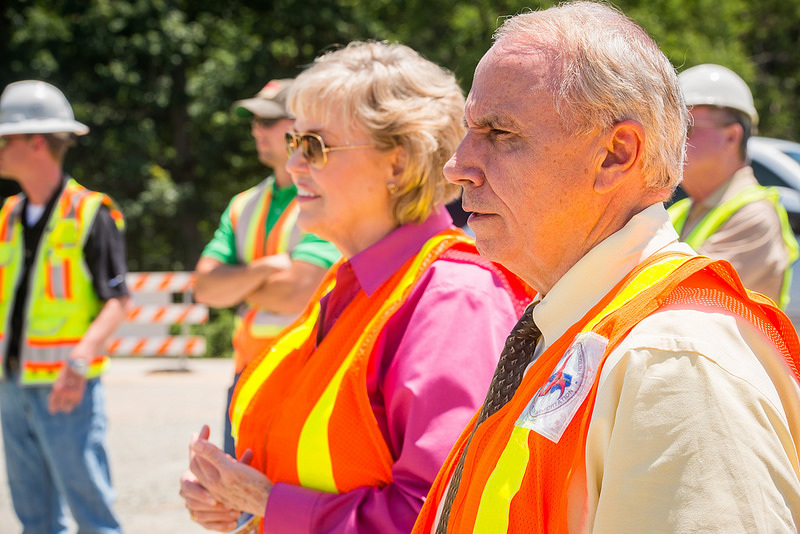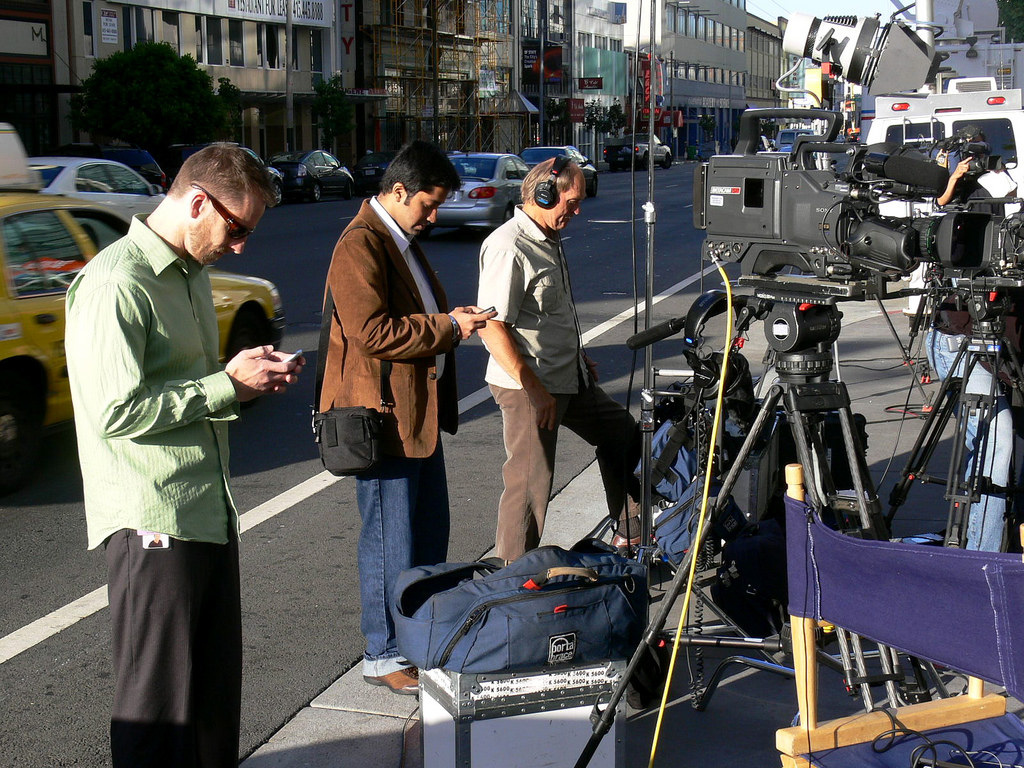|
The scene is familiar to anyone who has watched cable news: A reporter with a microphone catches a CEO outside of his office and asks about a recent company controversy; the CEO is surprised and annoyed; he shoves his hand in front of the camera and says, “No comment,” before scurrying away.
At Mack Communications, the phrase “no comment” makes us cringe. More often than not, the public assumes guilt when they hear it. “No comment” is now equated to, “Yes, we’re guilty, but we don’t want to admit it,” or “We have something to hide.” In today’s interconnected world, it’s incredibly easy for companies to communicate with the public. A business can email, Tweet, or send a press release. It’s also very easy for the public to speculate and spread false information through these mediums, fast. Saying “no comment” provides no information, encouraging the media or public to create their own narratives.
0 Comments
This is the final of a three-part series on how to conduct a successful interview with the media. Read previous posts about understanding the media and preparing for an interview.
Now that you’ve done your research and prepared your talking points, it’s time for the big event! Follow our top ten pieces of advice below, and you’ll be well on your way to being an interview pro: This is part two in a three-part series on how to conduct a successful interview with the media. Read the previous post about understanding the media here.
One of the easiest ways you can make sure you have a successful interview is to adequately prepare. Below are our top pieces of advice to help you prepare for an interview. Know what to expect: Conduct some research yourself: Has the reporter written on this topic before? What angle did they take? This might give you a better sense of what to expect during your interview. You can also ask the reporter what types of questions will be asked to get a general sense (they probably won’t give you specific questions). Make sure you’re up on current events in your field so you're less likely to be caught off-guard by a question. This is part one in a three-part series on how to conduct a successful interview with the media.
Being interviewed by the media can be nerve-wracking, no matter how many times you’ve done it. However, interviews don’t have to be painful experiences; with the right amount of understanding and preparation, anyone can make it through an interview like a pro. The best way to ensure you start off on the right foot is to understand the media, so you better know what to expect. Before your interview, consider the following points: Never underestimate the power of brevity. Keeping your message short and sweet increases the odds your audience will stick around to hear everything you have to say. As demonstrated in this article and others, many readers don’t make it past the headline of an online article-- let alone if they have to scroll down the page.
Offline, too, brevity can grant you an air of confidence and competence-- whether in a presentation, press conference, or interview. The trick is knowing when you do need to go into detail: some complex issues or crisis events may require more than 140 characters on Twitter. Find the sweet spot between rambling and a paucity of information, and your message will come across loud and clear. Although it makes us cringe to see publicity go bad, we find that sticky situations can lead to lessons learned. After mulling it over, here’s what we think were a few of the top public relations/communications bloopers and blunders of 2016. Let's hope for fewer in 2017!
Ryan Lochte gets rowdy in Rio: Olympic medalist and swimmer Ryan Lochte made headlines during this summer’s Rio Olympics after sharing a dramatic account of being robbed at gunpoint after a night out partying. However, once the press realized a few of his details didn’t quite add up, the Brazilian police conducted an investigation and revealed a different story: Surveillance footage had Lochte and posse drunkenly vandalizing a gas station. National embarrassment, a public apology, and a 10-month suspension from swimming ensued. Mack assessment: As we’ve said before, honesty is the best policy. Lochte might have been able to prevent the situation spiraling into an international spectacle if he had copped to his mistake right away, and done damage control from there. Flint, Michigan's water woes: After switching water sources in 2014, residents of Flint, Michigan began to complain about dirty, discolored water, rashes and bad aromas. By 2015, water testing done by Virginia Tech revealed elevated lead levels, and the Michigan EPA began sounding the alarm over water quality. Yet even as evidence of the toxicity of Flint’s water continued to mount, officials at the Michigan statehouse downplayed the concerns of residents. By 2016, Obama declared a state of emergency in the city. The state government was pilloried over their handling of the situation, which put tens of thousands of people--including children--at risk. Mack assessment: This is a classic case of a mismanaged crisis. When things go south, the first step is to acknowledge the crisis and speak to the concerns of the people affected. Too often companies and governments bury their collective heads in the sand, hoping the problem will go away. Ignoring the problem only exacerbates the crisis. Brain cramp takes down Gary Johnson: During an interview with MSNBC in September, a commentator asked Libertarian presidential nominee Gary Johnson how he would address the refugee crisis in Aleppo, Syria. Johnson’s response-- “What is Aleppo?”-- was like the shot heard around the (Twitter) world. In what would later turn out to be an accurate prediction, the New York Times speculated that “the stumble could be a serious blow to Mr. Johnson’s campaign.” Mack assessment: For TV interviews, it’s crucial to prepare beforehand to avoid being caught off guard. Sometimes, though, journalists may throw you a curve ball. Johnson would have benefited from learning how to block a question in order to respond only on topics you’re ready for. [Photos via CNN] The internet and social media make it easier than ever to spread information (factual or not) like wildfire. If your company or organization has big news to share, choosing to make a big announcement gives you more control over the message and tone of your news (rather than waiting for the media to find out on its own).
Here are three things to consider before making big announcements:
With today’s endless news cycle, it’s more important than ever to respond to crises promptly and directly. That’s one reason why having a crisis communications plan in your back pocket is so important. It’s good to have facets of your plan memorized however, just in case you get caught off-guard by a particularly persistent reporter.
Although it’s best to always answer as honestly and directly as you can, keeping these five questions in mind may help you have more confidence in reassuring the public. 1- What happened? Mack advice: Only tell what you know, and avoid speculation. 2- Why did [problem] happen? Mack advice: Be willing to admit fault, but avoid pinning blame on anyone/department in particular. Making guesses can hurt the reputation of parties in the short run that weren’t involved at all. 3- Can this problem happen again? How do you know? Mack advice: Be honest. Reassure the public that you’re doing everything to solve the current issue. 4- What are you doing to solve the problem? Mack advice: Again, honesty is key. People want to see companies take action after a crisis, so give tangible examples of what your employees are doing to solve the problem. 5- Who else can we talk to and where can we receive updates? Mack advice: It’s important to have a website available for crisis situations that can provide updates to the public. Be sure you can direct people there if asked. Difficult situations often produce the wrong response when it comes to media relations and crisis communications. The instinct to run and hide just won't cut it.
Your long term success will hinge on how well people see you as forthcoming. People judge character. They want to see someone who can be trusted, someone they can believe, someone they see as doing everything possible to fix the problem. Tell the truth, to the extent that you can. If there are details you're not allowed to discuss, explain why. In a nutshell: do the right thing. That includes responding in a timely manner. Mack Communications | @mack_comm The goal for any crisis communications plan is to control your message while you control the crisis. If you don't, you suddenly have two crises, the original event and a secondary crisis of a poor response.
You need three key tools for effectively communicating during a crisis: 1. Planning It's important to have a plan in place so that you're able to manage your message and respond to the media in a timely manner. A plan involves selecting key personnel and what responsibilities they will have, a point person for social media, a media distribution list and determining your media staging area if you believe one will be needed. That's just to get the ball rolling. |
tags
All
Archives
March 2019
|
Photos from Meet the Media Guru, Joseph.Morris, BoldContent, MDGovpics, Grzegorz Łobiński, Mr Moss, North Charleston, ITU Pictures, wistechcolleges, .v1ctor Casale., www.audio-luci-store.it, katielips, editor64, NeighborLink Fort Wayne, AMagill, timsackton, MyFWCmedia, Matt J Newman, Mr.TinDC, Skley, mikecogh, othompsonski, wayne's eye view, Elvert Barnes, woodleywonderworks, North Charleston, MoBikeFed, flossyflotsam, North Charleston, NYCDOT, US Mission Geneva, jjandames, aalborgstift, BurnAway, A. Germain, North Charleston, NCDOTcommunications, IAEA Imagebank, The Chapman Cultural Center, hitsnooze, Wiertz Sébastien, charliekwalker, cliff1066™, TheeErin, woodleywonderworks, dane brian, Aramil Liadon, 2010 World Wheelchair Basketball Championships, Ty Nigh, freddthompson, Nadia Szopinska, west.m, stormwarning., Bright Meadow, Giorgio Montersino, Chris Erwin, Aplomb, jfingas, joce01_y, Massachusetts Dept. of Environmental Protection, Kevin Walter, Andrew Feinberg, Yan Arief, kellypretzer, Korean Resource Center 민족학교, veDro - l'Italia al futuro, crdotx, US Mission Geneva, Joe Shlabotnik, esocialmediashop, Stephen Cummings, CarbonNYC, sidewalk flying, MoBikeFed, marksdk, Marco Raaphorst, Saleel Velankar, adactio, edkohler, World Economic Forum, USACE Europe District, stereogab, Florin Rosoga, MikeSchinkel










